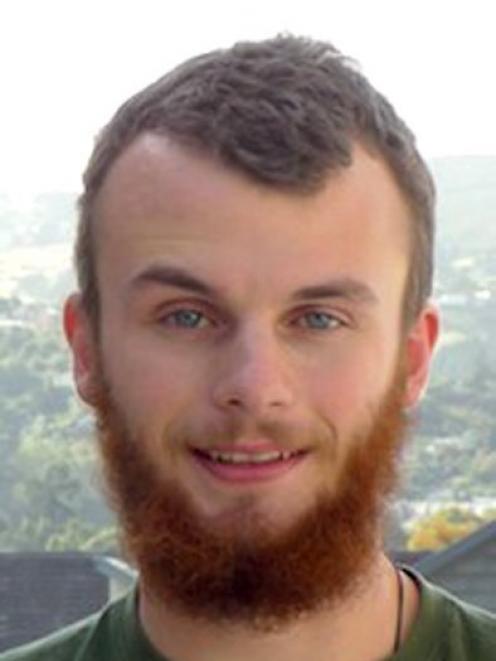Science
Dr. Trainor Secures $820,000 Fellowship for Quantum Crystal Research

Dr. Trainor, a postdoctoral fellow at the University of Otago, has been awarded a prestigious Royal Society Te Apārangi Mana Tūāpapa Future Leader Fellowship worth $820,000 over the next four years. This funding will support his research into the use of crystals in quantum memory storage, a technology that has the potential to revolutionize computing, security, and networking.
The fellowship will allow Dr. Trainor to investigate how specially lab-grown crystals, enhanced with small amounts of rare earth elements such as erbium and neodymium, can be optimized for optical quantum memory applications. His research aims to create novel materials and refine the conditions under which these materials operate effectively, paving the way for their mainstream adoption.
Research Breakthroughs in Quantum Technology
Dr. Trainor and his team have demonstrated that rare-earth-doped magnetically ordered crystals show significant promise for data storage in optical quantum memory. To achieve this, the crystals are cooled to temperatures lower than those found in outer space, and laser pulses are employed to manipulate the elements within the crystals. He stated, “I have been using such crystals to store single particles of light—photons—and recall them, which could be used as part of a future quantum network.”
His research represents a critical step toward the practical application and commercialization of quantum technologies. Understanding the optimal conditions for these crystals is essential for advancing their usability in real-world scenarios.
Additional Fellowships Awarded to Otago Researchers
In addition to Dr. Trainor, several other researchers from the University of Otago received Mana Tūāpapa Future Leader Fellowships. Dr. Alice-Roza Eruera will explore ancient viruses and their evolutionary pathways to determine their potential utility in biotechnology and medicine. Dr. Rebecca French is set to investigate the risks of viruses carried by rats in New Zealand that may pose health threats to humans.
Dr. Caitlin Owen aims to develop a more transparent and energy-efficient automated machine-learning system, while Dr. Wahineata Smith will study the experiences of Māori and Tongan families raising children with dual heritages. These projects highlight the diverse range of research being undertaken at the university.
Additionally, Professor Neil Gemmell from Otago was one of two researchers in New Zealand to receive a Royal Society Mana Tūārangi Distinguished Researcher Fellowship valued at $220,000. This fellowship will facilitate his investigation into the role of mitochondrial DNA in fertility, health, and aging, utilizing advanced genetic tools. He noted that this research will enhance our understanding of the mitochondrial genome’s influence on various biological factors.
The recognition of these researchers underscores the commitment of the University of Otago to advancing scientific knowledge and innovation in various fields, contributing significantly to both local and global communities.
-

 World3 months ago
World3 months agoTest Your Knowledge: Take the Herald’s Afternoon Quiz Today
-

 Sports3 months ago
Sports3 months agoPM Faces Backlash from Fans During Netball Trophy Ceremony
-

 Lifestyle3 months ago
Lifestyle3 months agoDunedin Designers Win Top Award at Hokonui Fashion Event
-

 Sports3 months ago
Sports3 months agoLiam Lawson Launches New Era for Racing Bulls with Strong Start
-

 Lifestyle3 months ago
Lifestyle3 months agoDisney Fan Reveals Dress Code Tips for Park Visitors
-

 Health3 months ago
Health3 months agoWalking Faster Offers Major Health Benefits for Older Adults
-

 World3 months ago
World3 months agoCoalition Forms to Preserve Māori Wards in Hawke’s Bay
-

 Politics3 months ago
Politics3 months agoScots Rally with Humor and Music to Protest Trump’s Visit
-

 Top Stories3 months ago
Top Stories3 months agoUK and India Finalize Trade Deal to Boost Economic Ties
-

 Entertainment3 months ago
Entertainment3 months agoExperience the Excitement of ‘Chief of War’ in Oʻahu
-

 World3 months ago
World3 months agoHuntly Begins Water Pipe Flushing to Resolve Brown Water Issue
-

 Science3 months ago
Science3 months agoNew Interactive Map Reveals Wairarapa Valley’s Geological Secrets









